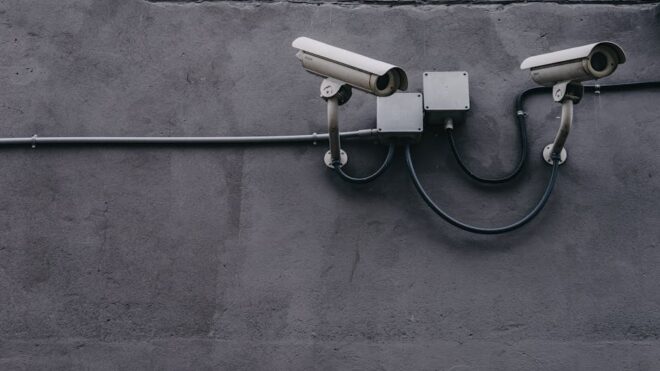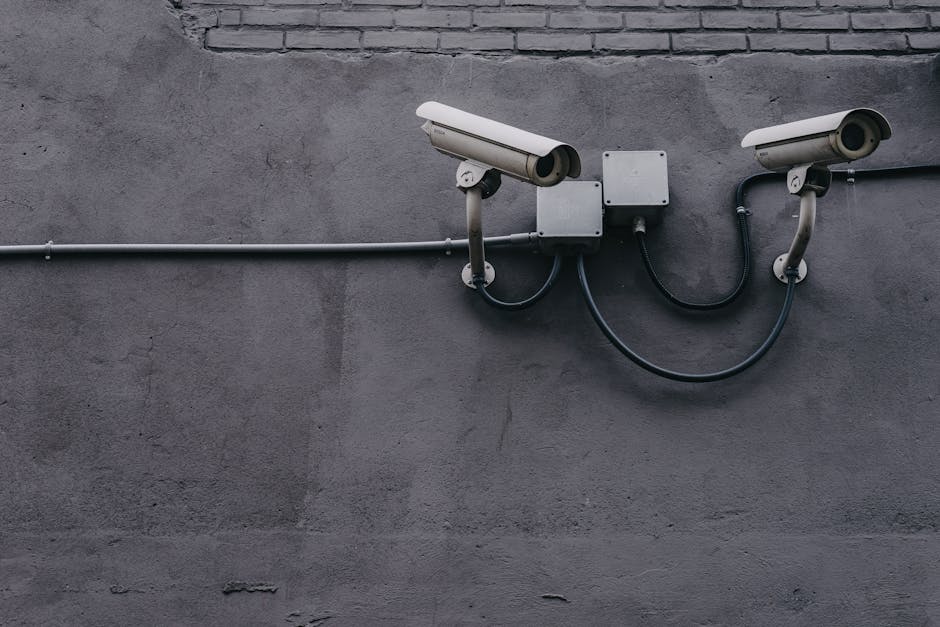Introduction to Security Camera Systems for Businesses
Choosing the right security camera system for your business is crucial. It’s not just about monitoring; it’s about safeguarding your assets, employees, and customers. Today, the market is flooded with options, making it hard to narrow down the best fit for your needs. Understanding the basics is the first step. Security cameras come in various types, including analog, IP (Internet Protocol), and wireless. Analog cameras are the traditional type, offering basic functionality. IP cameras are more advanced, transmitting video over the internet, allowing for better quality footage and remote viewing. Wireless cameras provide flexibility in installation but can be susceptible to interference. The key is to assess what your business needs. Consider factors like the size of the area you need to cover, the quality of footage required, and how you want to access your camera feed. Remember, investing in a security camera system is investing in your business’s safety and peace of mind.
Key Features to Look for in Security Camera Providers
When scouting for security camera providers for your business, focus on a few crucial features to get the best value and protection. First, consider the quality of the cameras. You want high-resolution images that make it easy to identify faces and other important details. Next, think about storage solutions. Providers offer cloud storage or on-site storage, and each has its benefits and limitations. Ensure there’s enough space and that it fits your security strategy.
Access and control are paramount. You should be able to access footage remotely from any device, giving you control and the ability to respond quickly to incidents. Also, look for systems that offer real-time alerts. This feature can inform you immediately of any suspicious activity, allowing for swift action.
Durability is another factor. Opt for cameras that can withstand your local weather conditions, be it rain, snow, or extreme heat. Lastly, consider the customer support and maintenance services offered by the provider. Reliable support can mean the difference between a minor hiccup and a major security failure.
Choosing the right security camera provider involves weighing these key features against your business’s specific needs. Go for a balance of quality, access, and support to ensure your property and personnel are well-protected.
Understanding Different Types of Security Cameras
When you’re looking to boost your business security, knowing your camera options is crucial. Let’s keep it simple. There are mainly four types of security cameras you should consider. First up, dome cameras – these are easily spotted but their design makes it hard for someone to tell where the camera is pointing. They’re good for indoor use and watching wide areas. Then, we have bullet cameras. They’re long and cylindrical, best for outdoor use because they can cover a longer distance. PTZ (Pan, Tilt, Zoom) cameras give you control to move the lens and zoom in on specific activities or areas, ideal for monitoring large, busy spaces. Lastly, IP (Internet Protocol) cameras. These are the modern choice, offering remote viewing from your phone or computer. They can be either wired or wireless and provide high-quality video. Choosing the right type depends on what area you need to monitor, how visible you want the camera to be, and whether you need to view the footage remotely.
Evaluating the Reputation of Security Camera Providers
When it’s about safeguarding your business, not just any security camera provider will do. You need someone reliable, with a proven track record. Here’s the straight shot on evaluating their reputation. First off, check online reviews, but take them with a grain of salt. Look for patterns in feedback. If several reviews mention poor customer service or issues with camera quality, take note. Next, ask for referrals. Talk to other businesses in your network. If a provider consistently gets high marks from peers, that’s a good sign. Also, consider how long they’ve been in the business. Longevity suggests they’re doing something right. Finally, glance through their portfolio or case studies. Seeing real-world examples of their work and the outcomes can speak volumes. Remember, choosing the right provider is critical for your business security, so take your time to do thorough research.
Installation and Maintenance: What to Expect
When picking a security camera provider, think about installation and maintenance – they’re essential. Good news, many providers offer installation as part of the package. This means they’ll set everything up for you, so you don’t have to worry about figuring out the techy stuff. But, keep in mind, the complexity of your system can affect the cost. More cameras and features? Expect to pay more for installation.
Maintenance is another key point. Security systems need check-ups to make sure they’re working right. The best providers give you support and service plans. This means they’ll fix any issues and update your system to keep it top-notch. Some offer this for free, while others charge a fee.
So, when you’re choosing, ask about the installation and maintenance. Know what’s included and what might cost extra. This helps avoid surprises down the road. Remember, it’s not just about buying cameras; it’s about keeping them running for the safety of your business.
Comparing Costs: Pricing Models of Security Camera Providers
When looking at security camera providers, you’ll notice there’s no one-size-fits-all cost. It boils down to what features you want, the number of cameras, and whether you go with a basic setup or a high-end system with all the bells and whistles. Generally, you’ll come across three main pricing models: upfront purchase, monthly subscriptions, or a mix of both. Upfront costs can range from (50 to over )2,000 per camera, depending on the tech complexity and brand reputation. Monthly subscriptions can vary too, usually between (10 and )50 per month, offering cloud storage, professional monitoring, and regular software updates. Some providers combine both models, requiring an initial purchase followed by a monthly fee. It’s key to weigh what you get against how much you’ll pay over the lifetime of the system. Remember, going cheap might save you now but could lead to headaches or higher expenses down the road if the system doesn’t meet your business’s security needs.
The Importance of Scalability and Flexibility
When shopping for security cameras for your business, remember that scalability and flexibility are key. As your business grows, so will your security needs. You want a system that can grow with you, easily integrating more cameras or advanced technology without a complete overhaul. Flexibility means the system works with various camera types and technologies as they evolve. This adaptability saves you time and money in the long run, ensuring you’re not stuck with outdated equipment or forced into expensive upgrades. Opt for providers that offer scalable solutions and flexible integration options, keeping your business secure now and in the future.
Assessing Integration Capabilities with Your Current Systems
When picking a security camera provider for your business, it’s important to check how well their systems can work with what you already have. This is about making sure the new security cameras can talk to your existing security setup. You want a smooth operation, with all parts working together. Here’s why it makes a big difference:
- Avoid extra costs: If the new cameras don’t integrate well, you might end up paying more to make everything compatible. Keeping things simple and compatible saves money.
- Ease of use: A system that’s all connected and talking to each other means less hassle for you. You don’t want to switch between different systems to check on your business.
- Future upgrades: Going for a system that’s flexible and integrates well means you can add more cameras or tech down the line without major headaches.
So, when talking to providers, ask about compatibility with your current systems. Check if they’ve handled similar setups before and can offer a seamless integration experience. Remember, a good fit now means fewer problems later.
The Role of Customer Support and Service in Your Decision
When picking a security camera provider for your business, the value of customer support and service cannot be overstressed. It’s not just about installing cameras and forgetting them. Imagine your cameras malfunction at a critical moment or you face a technical glitch. That’s when robust customer support becomes your lifeline. Look for a provider with a 24⁄7 helpline, online chat, and email support. Speed of response matters too. You don’t want to wait hours or days for help. Also, consider the provider’s willingness to offer guidance on using their system to its full potential. A provider interested in your business’s security as much as you are will make a noticeable difference. So, don’t skimp on this aspect. It can be the deciding factor between a smooth, secure operation and one that’s fraught with vulnerabilities.
Conclusion: Making an Informed Choice on Security Camera Providers
Choosing the appropriate security camera supplier is vital for your business’s safety and surveillance. It entails grasping your unique requirements and conducting research. Evaluate the areas of your business that require monitoring, the most suitable camera types, and the essential features for you. Additionally, consider the supplier’s reputation, customer service, and long-term costs. Remember that selecting the cheapest provider can result in disappointment. Strive to find a balance between quality, dependability, and budget. Engage with various suppliers, compare their offerings, and identify who excels in terms of value and service. Your business’s security is paramount, so approach this decision thoughtfully. Take your time to select an option that offers peace of mind and confidence in safeguarding your business.


